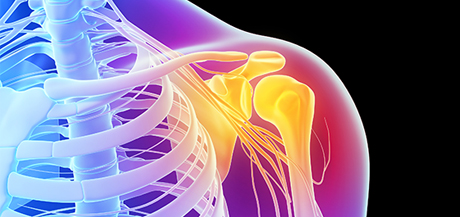May 1-2, 2015 - Mayo Clinic, Stabile 9, 221 4th Avenue SW, Rochester, MN
An advanced course for orthopedic surgeons treating disorders of the shoulder. This course includes didactic sessions and laboratory experience using cadaver specimens. Live video demonstrations and panel discussion are an integral part of the overall learning experience. This course teaches the principles and techniques for management of rotator cuff tears, SLAP lesions, instability and arthritis.
Registration Fees
Registration Fee: $1,100
Course Highlights
Friday, May 1, 2014
7:00 a.m. Breakfast
8:00 a.m. Lectures and Case Discussion
12:00 p.m. Lunch
1:00 p.m. Surgical Skills Cadaver Workshop
4:30 p.m. Adjourn
7:00 p.m. Conference Reception
Shoulder Arthroscopy
- Partial Rotator Cuff Repair: Debride or Repair
- Rotator Cuff Repair: Single or Double Row Options for the Massive Tear
- Treatment of Posterior Instability and MDI SLAP and Biceps Lesions
- Management of the Patient with First Time Anterior Dislocation
- Panel Discussion: Arthroscopic Cases
- Surgical Skills Cadaver Workshop
– Rotator Cuff Repair
– Instability Repair
– Slap Repair
– Nerve Dissection
– Glenoid Resurfacing
Saturday, May 2, 2014
7:00 a.m. Breakfast
8:00 a.m. Lectures and Case Discussion
12:00 p.m. Lunch
1:00 p.m. Surgical Skills Cadaver Workshop
4:30 p.m. Course Adjourns
Shoulder Fractures
- Clavicle Fractures
- Proximal Humerus Fractures
- Humeral Shaft Fractures
- Scapula Fractures
- Distal Humerus Fractures
- Panel Discussion
Shoulder Arthroplasty
- Anatomical Solutions to Total Shoulder Design
- Biomechanics of Shoulder Arthroplasty
- Shoulder Arthroplasty for the Sequelae of Trauma
- Revision Shoulder Arthroplasty
- Rotator Cuff Deficiency Arthropathy
- Reverse for Cuff Deficient Shoulder
- Panel Discussion: TSA and Fractures
- Surgical Skills Cadaver Lab
– Fracture
– Primary TSA
– Reverse
Upon conclusion of this program, participants should be able to:
- Identify patterns of rotator cuff tearing, including supraspinatus, infraspinatus and subscapularis.
- Diagnose shoulder instability due to both fracture and ligamentous laxity.
- Apply the indications for surgery in instability and rotator cuff tears.
- Differentiate the various surgical approaches for treatment of rotator cuff tears and instability.
- Demonstrate the ability to repair ligamentous laxity, debride arthritic lesions and repair SLAP lesions.
- Formulate an arthroscopic approach to the patient with arthritis, rotator cuff lesions, instability and SLAP tears.
- Evaluate the patient with shoulder arthritis.
- Employ various surgical approaches for shoulder arthroplasty.
- Describe the appropriate use of the reverse total shoulder technique.
- Demonstrate reconstruction using the reverse total shoulder.
- Describe treatment of shoulder fractures.
Attendance at this Mayo course does not indicate nor guarantee competence or proficiency in the performance of any procedures which may be discussed or taught in this course.

 Facebook
Facebook X
X LinkedIn
LinkedIn Forward
Forward